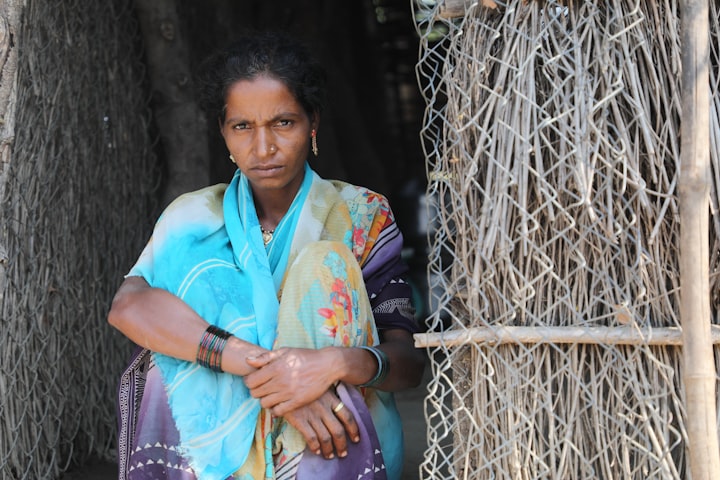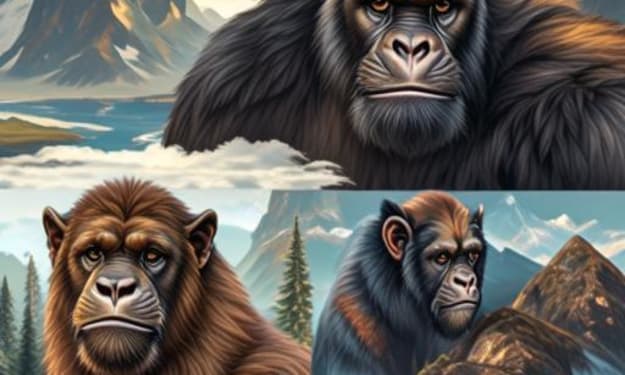A poor farmer
Once upon a time, there was a poor farmer named Clybes. One day, he drove two oxen to pull a cart

Once upon a time, there was a poor farmer named Clybes. One day, he drove two oxen to pull a cart of wood into town and sold the wood to a doctor for two gold coins.
The doctor gave him some money while sitting at the table to eat. When the farmer saw the doctor's meal so rich, he felt envious from the inside and thought how good it would be if he was also a doctor. He stood there frozen for a while and finally asked the doctor shyly if he could be a doctor too.
"Oh, yes," said the doctor, "that's very good."
"What should I do?" The farmer then asked.
"First buy a primer with a rooster at the beginning of the volume; then exchange your wagon and two cows for money to buy yourself some clothes and some medicine-related items; and finally make a sign that says: 'I am the all-knowing doctor' and nail it to the top of your door. "
The farmer did everything accordingly and began to practice medicine.
In a short time, a rich man's money was stolen, and he heard that there was a doctor of all things in such-and-such a village, and he thought he must know where the stolen money was. So the rich man put on his carriage and drove to that village. He asked Clynes if he was the know-it-all doctor.
"Yes, I am," Cribbs replied.
The rich man invited him to go with him to recover the stolen money.
"Oh, yes, but my wife Gerrit must go too.'" The rich man agreed, asked them both to get into his car, and together they went on their way.
When they arrived at the wealthy man's mansion, the table was set and Clynes was invited to be seated for dinner. "Well, but my wife Gerrit has to be seated too." He said. Then he and his wife sat down at the table together.
At that moment, the first servant came in with a plate of fine dishes, and the farmer nudged his wife with his elbow and said, "Gerrit, this is the first one." What he meant was that this was the first dish.
The servant, however, thought he was saying, "This is the first thief." He was the thief, so he was very afraid and said to his accomplice outside, "The doctor knows all about it, and we're going to be unlucky because he says I'm the first."
The second one was afraid to come in, but he had to come in.
When he came in with the dishes, the farmer nudged his wife with his elbow and said, "Gerrit, this is the second one."
This servant was equally frightened and immediately drew himself out.
The third was also frightened, for the farmer said again, "Gerrit, this is the third."
The fourth came in with a covered plate, and the rich man asked the doctor to show his talent by guessing what was under the lid. The plate contained shrimp. The doctor stared at the plate, but did not know what to say, he lamented: "Alas, poor Klebs (Note: his name "Klebs" in German means "shrimp". He lamented, "Alas, poor Klebos (note: his name "Klebos" means "shrimp" in German.
As soon as he heard that, the rich man exclaimed, "That's great! He knows what's in there, and he must know where the money is!" A father took his son to visit Van Gogh's home. After seeing the small wooden bed and the cracked leather shoes, the son asked his father, "Wasn't Van Gogh a millionaire?" The father replied, "Van Gogh was a poor man who didn't even have a wife."
Another year later, the father took his son to Denmark to visit his former home, and the son again asked in confusion, "Dad, didn't he live in a royal palace? How come he was in this attic when he was alive?" The father replied, "It was the son of a shoemaker, and he lived here."
The father was a sailor who traveled to and from various ports in the Atlantic Ocean every year, and his son, named Eden Bragg, was the first black journalist in the world to win the Pulitzer Prize.
Twenty years later, recalling his childhood, Idunblag said, "At that time, besides being very poor, our family was still black, and both parents earned their living by selling hard labor. For a long time, I thought a black man of our lowly status couldn't make a living. It was my father who introduced me to Van Gogh and Hans Christian Andersen, and it was also my father who made me realize that black people are not inferior and that the experiences of these two people showed me that God does not despise black people."
Insight: The rich are not necessarily great, and the poor are not necessarily humble. God is fair, he spreads opportunities to everyone, and the humble also have opportunities. Inferiority is a nail in the heart, if it is not removed, it will always torment people.
About the Creator
Steve Billups
On the way home, the roadside was full of flowers and plants, which was a delight to the eyes






Comments
There are no comments for this story
Be the first to respond and start the conversation.